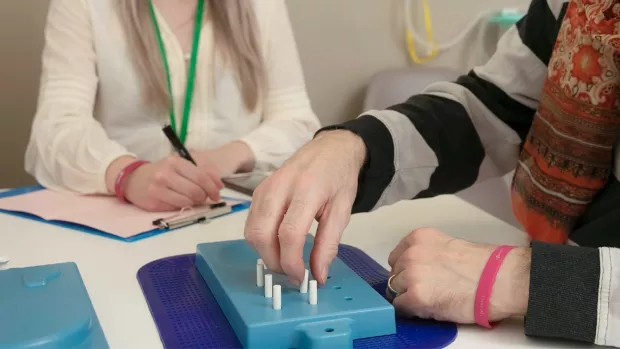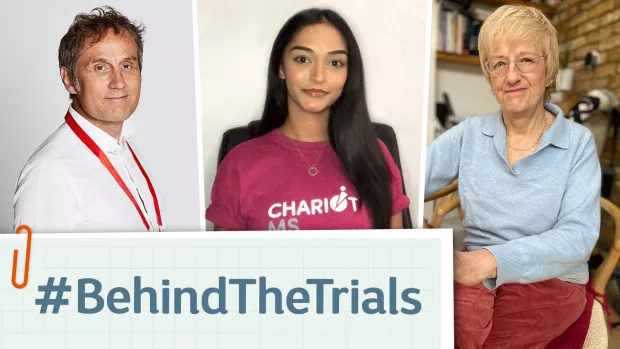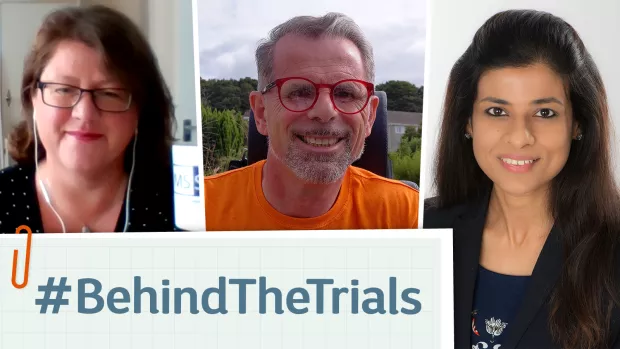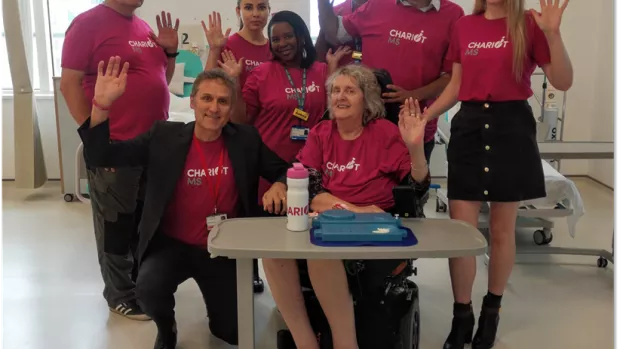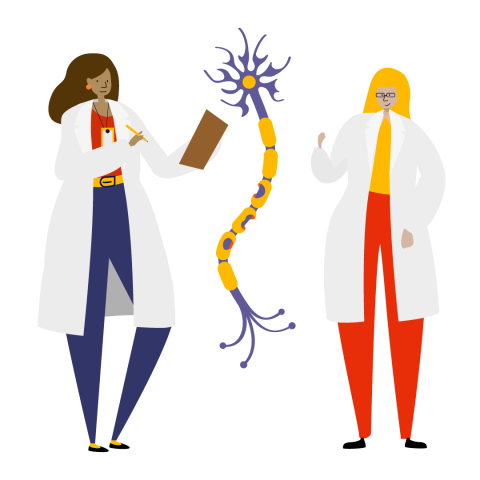
Taking on the challenge: meet the researcher leading clinical trials to find treatments for everyone with MS
Dr Tarunya Arun is Consultant Neurologist at the University Hospitals of Coventry and Warwickshire. There, she’s the joint lead for the MS service and the Research Lead for neurology.
The best advice I was ever given was from my grandfather. As a child, I liked the challenge of competitive sports. My grandfather would say to me, “Don’t look at what the person on your right or your left is doing. Just focus on yourself, and being a little better than you were last time.” And I think this is true for everything in life. Now I ask myself, can I be a little better than yesterday?
Challenges and successes
As a researcher, I like the challenge of studying the brain. When I was a medical student I decided to focus on neurology. It also gave me the opportunity to spend lots of time with people in the clinic.
MS in particular appealed because many of the people with MS were the same age as me. I felt I could join them on the journey, helping them throughout.
At the time, there weren’t a lot of treatments, but lots to discover. In the course of my career we’ve gone from having no disease moderating therapies (DMTs) to over twenty. It has been amazing to be a part of the research. But we need more options for people with progressive MS.
The way we’re moving now is towards a multipronged approach for MS treatments. I don’t think there’ll be one drug which treats everyone with MS.

Clinical trials
One of the hardest things as a clinician is telling people with progressive MS they have to stop treatments. Now I can offer them more options with clinical trials.
This is great, because even if they’re on the placebo, they have more contact with their clinicians and support team through the trial. Sometimes they’ll go from no contact at all to regular meetings with different healthcare professionals.
At our site in Coventry and Warwickshire, we’re part of multiple clinical trials. Some are specifically for people with progressive MS. I’m lead investigator here for MS-STAT2 and I’m involved in DELIVER-MS. Soon we’ll also be recruiting for people to join Chariot-MS and Octopus.
Future treatments
When we’re thinking about treatments, it’s good to look to the future. We need basic research to understand what's really happening in the brain. So we can design specific treatments.
But we also have to think about the present. We need to be prioritising people’s quality of life, early treatment and early diagnosis. Even weeks and months make a difference.
The way we’re moving now is towards a multipronged approach for MS treatments. I don’t think there’ll be one drug which treats everyone with MS.
Why I’m motivated
I always wake up and think about the fact that I can go to work today and I could make a difference. Whatever might be the size of that difference to someone’s life. It's a privilege to be part of people’s lives in this way.
I want our treatments for people with MS to be better than yesterday.
